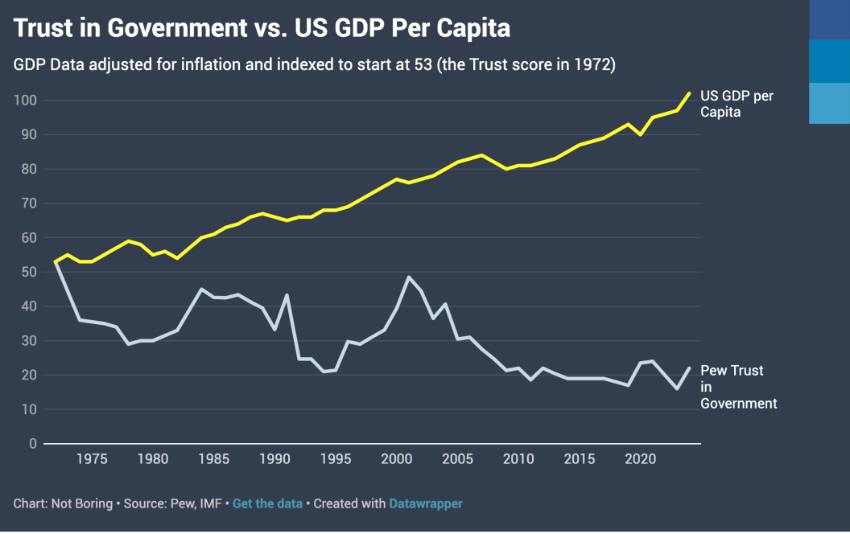To close out this shortened holiday week, a couple of stories on yet another failure in fintech with dire consequences for consumers, and reasons to stay hopeful.
1. “Deal directly with a bank”
CNBC investigates the ongoing fallout from the bankruptcy of banking-as-a-service provider Synapse, which has locked out over 100,000 customers from access to over $265 million of their deposits.
When Natasha Craft first got a Yotta banking account in 2021, she loved using it so much she told her friends to sign up.
The app made saving money fun and easy, and Craft, a now 25-year-old FedEx driver from Mishawaka, Indiana, was busy getting her financial life in order and planning a wedding. Craft had her wages deposited directly into a Yotta account and used the startup’s debit card to pay for all her expenses.
Today, her entire life savings — $7,006 — is locked up in a complicated dispute playing out in bankruptcy court, online forums like Reddit, and regulatory channels. And Yotta, an array of other startups and their banks have been caught in a moment of reckoning for the fintech industry.
“If it’s your spending money, you need to be dealing directly with a bank,” Scott Sanborn, CEO of LendingClub, told CNBC. “Otherwise, how do you, as a consumer, know if the conditions are met to get FDIC coverage?”
2. The American Millennium
I would be remiss to let this 4th pass without some recognition of our collective 248th birthday. So here is some first-class flag-waving from Packy McCormick on why we should all be optimistic about the future of America.
America is blessed with geography, abundant natural resources, and the most valuable resource of all: a driving entrepreneurial spirit that can overcome any obstacle put in our way and build technological solutions to short-term challenges that lead to long-term strength.
Today, once again, the economic data paints a different picture than the political sentiment, one that speaks to the difference between America and the Roman Empire, or any empire that’s come before.
It would be incredible to have deeply competent leaders, but in America, people can just choose to solve problems that the government can’t, doesn’t, or won’t. Accelerated progress despite government and institutional stagnation is exactly what makes America exceptional.
I’m here to tell you that the American Empire is not over. I’m here to tell you that we’re in the first century of the American Millennium.
No one is coming to save us.
You can just build things.
Those two phrases, which frequently appear in my X feed, are as optimistic as it gets.
As universities, legacy media, and traditional institutions crumble, as the government becomes ever more tangled in red tape, as two octogenarians duke it out to become the leader of the free world, America is built in such a way that entrepreneurs can just build things. And as the tools that entrepreneurs have at their disposal continue to improve, progress can continue to accelerate even as institutions stumble.
In fact, because technology compounds at a faster rate than legacy institutions, I’d expect that the share of responsibility for the continuation of the American Empire will continue to shift in the entrepreneurs’ direction.
To the extent that it is an empire, America is an empire defined not by its ability to expand geographically to capture existing resources, but by its ability to expand technologically to create new ones.
America, therefore, is a boundless empire.
God bless America and have a great rest of the 4th weekend. If you’re heading out of the ballpark game this week, know that fans of the Lake Country Captains look down on you with pity for your pedestrian seating options. Click below to let us know how we did:

